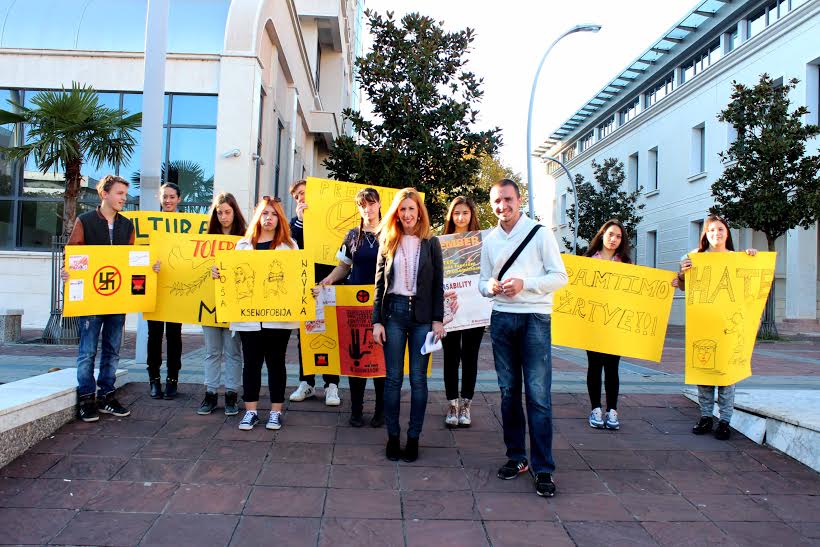Centre for Civic Education (CCE) underlines that by marking January 27 – International Day of Commemoration in Memory of the Victims of the Holocaust provides an opportunity to remind ourselves of the horrific aftermath of fascist ideology. It is also an opportunity for us to pause and contemplate on threats of fascism, which only violate human rights and hinder democratic development, to which we are not immune.
International Day of Commemoration in Memory of the Victims of the Holocaust should serve as a remark for us to discuss on the holocaust so that we could prevent other similar crimes from happening in the future. Unfortunately, wars are being waged throughout the world even as we speak, and there are leaders and followers who incite hate and who are prepared for the most horrific atrocities against the humanity. Hence, it is important to examine our past, face it adequately and condemn everything that came as a result of fascism and Nazism in order to secure higher level of sensitivity to justice, violence and violation of human rights which we, as well as the rest of the world, face nowadays.
Establishment of the society able to resist the dangers of fascism is achievable through: non-selective implementation of law; efficient and timely reaction from state bodies in the defence of human rights and freedoms; as well as application of education system to convey the facts about all war crimes of the past to the future generation, and which CCE has been advocating for years both as an independent organisation, and as a referent organisation of the Coalition for RECOM, which should become a matter of general culture and education, so that we do not forget those crimes and prevent them from happening again. This entails the engagement of all social actors who could contribute in shaping the framework of values based on equal opportunities, respect of diversity and tolerance, solidarity and responsibility.
January 27 is marked as the International Day of Commemoration in Memory of the Victims of the Holocaust because on that day in 1945 Soviet troops liberated the concentration camp Auschwitz-Birkenau, largest and most notorious camp of Nazi Germany. More than 1,300 000 persons from entire Europe were deported there, among whom the majority was Jewish population, and 1, 100 000 were executed. UN General Assembly passed an official resolution in 2005 regarding the International Day of Commemoration in Memory of the Victims of the Holocaust. Resolution compels every UN member state to respect the remembrance of victims of Holocaust and stimulates the development of educational programmes on the history of Holocaust, thus trying to demonstrate the determination to help prevent the act of genocide from ever happening again.
Tamara Milaš, CCE programme associate and spokesperson of Coalition for RECOM in Montenegro

